- From the section Europe
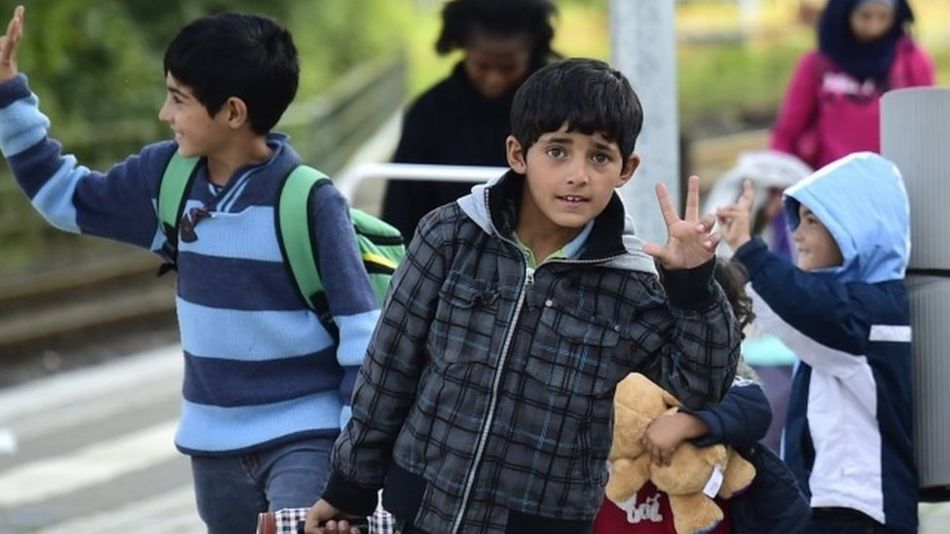
Mandatory quotas determining how many migrants each European Union
country should take in are a "first step", German Chancellor Angela
Merkel says.
She was speaking as the EU continues to grapple with a huge influx of migrants, which peaked at the weekend.The European Commission is set to announce plans on Wednesday, including quotas, to distribute 120,000 migrants among member countries.
Germany says it can cope with more in the future but wants the burden shared.
Mrs Merkel was speaking alongside the visiting Swedish Prime Minister, Stefan Lofven. Their countries have so far taken in the most Syrian asylum seekers.
Calling the European Commission's proposals "an important first step", Mrs Merkel added that the EU needed an open-ended "system to share out those with a right to asylum".
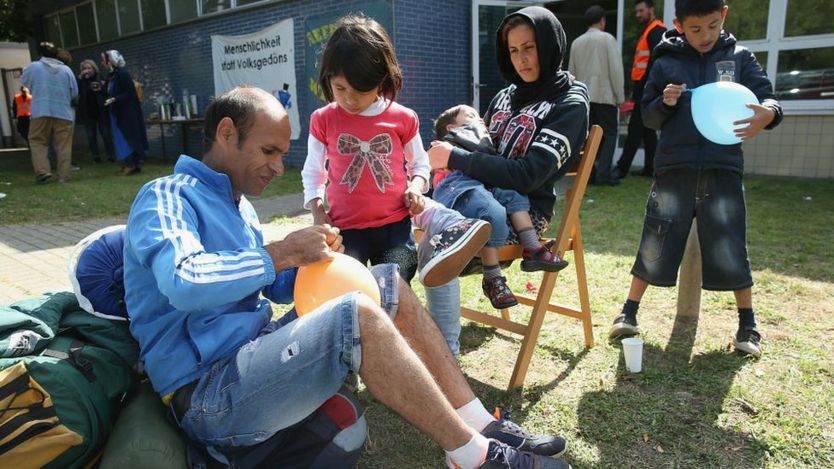
Migrant crisis in pictures
The quotas issue has exposed deep divisions within the EU.
Hungary, the Czech Republic, Poland, Slovakia and Romania have voiced reservations. But on Tuesday, Poland appeared to soften its position, Prime Minister Ewa Kopacz saying the country would accept more migrants than the 2,000 it first offered.
Spain, too, has now said it will accept whatever number is proposed by the European Commission
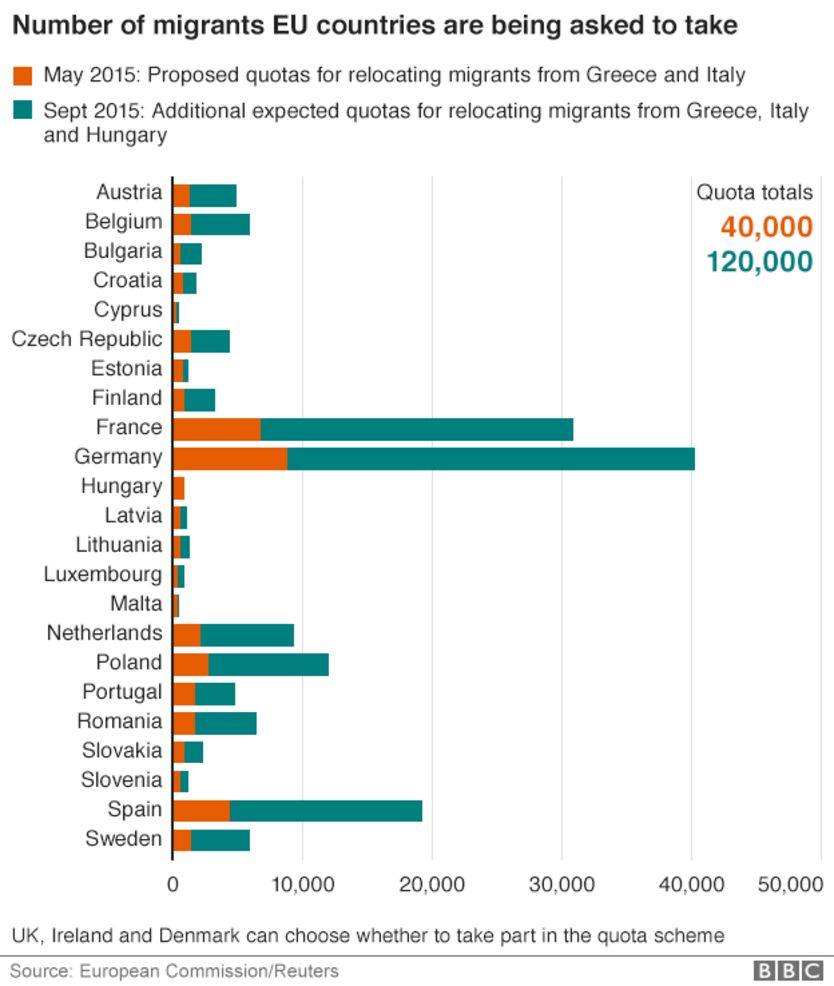
The numbers distributed to each country would depend on GDP, population, unemployment rate and asylum applications already processed, AFP news agency reports.
Countries refusing to take in migrants could face financial penalties.
The UN High Commissioner for Refugees, Antonio Guterres, has meanwhile labelled the EU's approach to asylum seekers "dysfunctional".
"It is clear that this is a serious crisis, but for me it is also clear that if Europe would be properly organised, it would be a manageable crisis. We are talking about 4-5,000 people per day, in a union that has 508 million people".
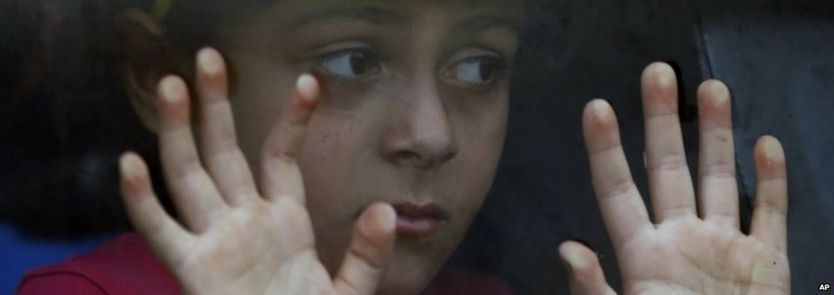
Peston: Why Germany needs migrants more than UK
What can the EU do to solve the crisis?
Nine key moments in crisis
The other exodus to Germany - people from the Balkans
Are you affected by the crisis?
The migrants, mainly Syrians, are engaged in a long trek that takes them from Turkey, across the sea to Greece, through Macedonia and Serbia, and then to Hungary from where they aim to reach Austria and Germany.
Hundreds continue to cross from Serbia into Hungary. There have been scuffles with police and a protest against being registered, with migrants chanting "no fingerprints".
Several trains carrying migrants headed northwards through Macedonia from the border with Greece.
The UNHCR says a record 7,000 Syrian migrants arrived in Macedonia alone on Monday and 30,000 were on Greek islands.
The government and UNHCR have brought in extra staff and ships to process them.
The UNHCR meanwhile highlighted the growing scale of the challenge, releasing new figures that suggest it expects 400,000 migrants to arrive in Europe by sea in 2015.
The majority are Syrian, and the UN says many are now seeking a better life in Europe because of poor conditions in refugee camps in Jordan and Lebanon - caused in part because of a drastic shortfall in multilateral aid programmes.
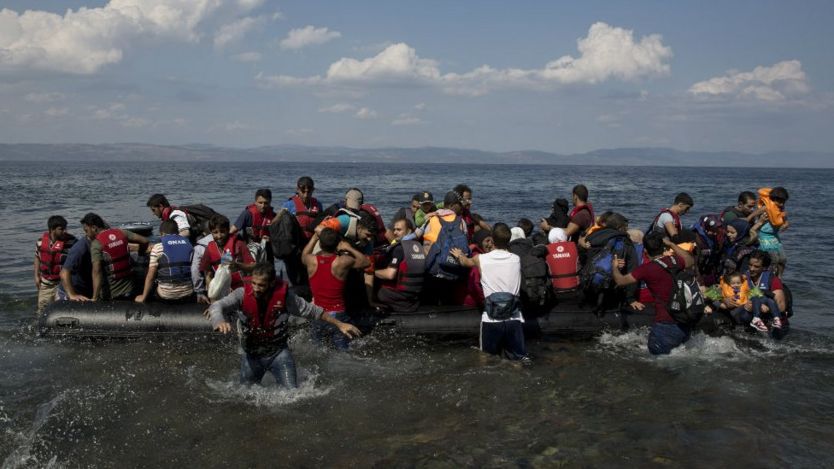
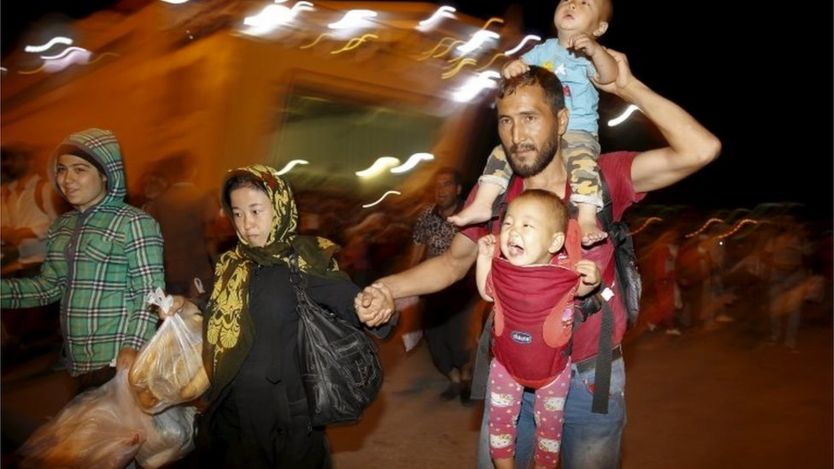
But this was no substitute for taking migrants in. "Buying your way out of this is not satisfactory," he said.
No comments:
Post a Comment